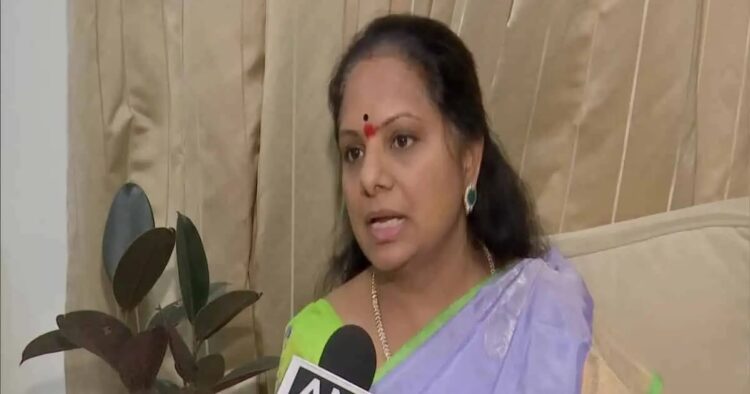The Enforcement Directorate (ED) conducted raids at the residence of Bharat Rashtra Samithi (BRS) Member of Legislative Council (MLC), K Kavitha, in Hyderabad. This action is part of an investigation into an alleged money laundering case linked to the Delhi excise policy. K Kavitha, who is 45 years old and the daughter of former Telangana Chief Minister and BRS chief K Chandrashekhar Rao, had previously been summoned by the ED.
K Kavitha had been questioned three times last year in connection with this case, and her statement was recorded under the Prevention of Money Laundering Act (PMLA). Despite these inquiries, Kavitha has maintained her innocence, alleging that the BJP-led Centre is politically motivated and using the ED to target her party due to its inability to gain traction in Telangana through democratic means.
Both the Enforcement Directorate and the Central Bureau of Investigation (CBI) have been probing this case. The ED initiated its investigation based on an FIR filed by the CBI. The agencies have alleged that irregularities occurred during modifications to the Delhi excise policy, including undue favors to license holders, fee waivers, and extension of licenses without proper approvals.
The investigation revealed the involvement of Hyderabad-based businessman Arun Ramchandra Pillai, who was a key figure in the alleged scam. Pillai, along with associates, is accused of facilitating kickbacks from the South Group, which includes K Kavitha, and channeling them through businesses in Delhi. The South Group allegedly gave kickbacks worth Rs 100 crore to leaders of the Aam Aadmi Party (AAP).
Arun Pillai is said to be a partner in Indo Spirits, a company that obtained an L1 license. The partnership included individuals representing benami investments of Kavitha and Magunta Srinivasulu Reddy, a Member of Parliament from Ongole, and his son Raghav Magunta. Pillai’s role in Indo Spirits was allegedly to represent Kavitha’s interests.
The ED has filed its first chargesheet in the case, following nearly 200 search operations. The agency’s investigation stemmed from a CBI case, which was registered based on a recommendation from the Delhi lieutenant governor. The allegations include violations of various laws related to excise policies, resulting in losses to the exchequer.
The alleged irregularities in the excise policy led to a loss of approximately Rs 144.36 crore to the exchequer, according to officials. These included decisions to refund earnest money deposits and waive license fees against established rules, purportedly due to the COVID-19 pandemic. The case has drawn attention due to its political implications and the involvement of prominent figures from various parties.

















Comments